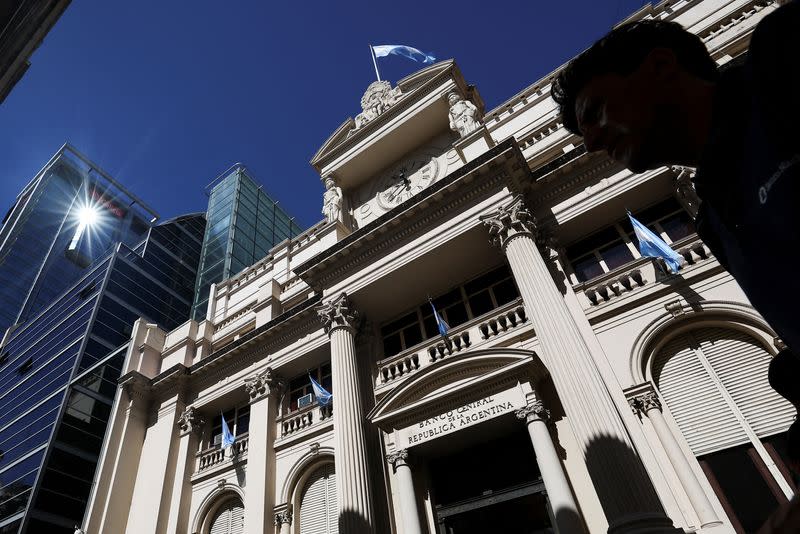Argentina's Milei needs to deactivate $400 billion 'debt bomb'

By Jorgelina do Rosario and Rodrigo Campos
BUENOS AIRES/NEW YORK (Reuters) -Argentina's economy has many problems, and dealing with a mountain of debt repayments over the next two years could determine whether the new government's economic road map succeeds.
The country's total sovereign debt exceeds $400 billion, some $110 billion of which is owed to the International Monetary Fund and to holders of restructured, privately-held eurobonds.
With central bank reserves in the red by more than $10 billion and little chance of tapping the market, the country has some $16 billion in debt payments coming due next year.
Javier Milei, inaugurated on Sunday with a mandate to straighten out the economy, spoke of a "$100 billion debt bomb" while economy minister Luis Caputo widened it to the $400 billion in total sovereign debt.
"Argentina is facing a formidable challenge in terms of FX debt maturities," said Juan Ignacio Paolicchi, chief economist at Buenos Aires-based consultancy firm Empiria.
"The need for a debt rollover is imminent."
The government on Wednesday weakened Argentina's peso by nearly 55% to 800 per dollar, and earlier said energy subsidies will be cut and tenders of public works canceled.
The grains exporter struggled in 2023 to pay back the IMF, resorting to deals with China and with Qatar to make ends meet.
Yet the fund said shortly after Caputo's economic measures' announcement that they provide "a good foundation for further discussions to bring the existing Fund-supported program back on track."
"Investors would wait for policies to be on a sustainable path, which would take time and political consensus. Against this backdrop, the IMF could play a role, facilitating the adjustment," said Martin Castellano, head of research for Latin America at the Institute of International Finance.
Argentina is the largest debtor to the fund, under a $44 billion program. Payments due to the IMF and other creditors total about $4 billion just through January.
The government said it aims to keep the current program alive and take uncertainty away from future disbursements.
Just this week, Fitch was the most recent name to predict that Argentina will have to restructure its debt in one form or other, a not-so-veiled warning of an impending 10th sovereign default.
"It is such a difficult starting point with very high debt and inflation, no foreign currency reserves and nothing like a majority in parliament" for the new government, said Ed Parker, global head of research, sovereigns & supranationals at Fitch.
"We think another default is probable - not necessarily next year - but there is a step up in debt payments from next year and then again in 2025, so the government would have to regain market access before then."
But again, the bond market has been trading as if Argentina were on default since the current dollar bonds started trading in 2020. Prices have not been above 50 cents since, with all six issuances trading under 30 cents as recently as October.
Others do not see restructuring as a done deal.
Argentina "is an investment case where we see room for optimism," said Alexis Roach, senior analyst for Latin America at Payden & Rygel.
"We're thinking that there is a possibility that they are able to avoid the restructuring conversation. Maybe that is too optimistic, but that is the foundation of our cautious optimism," she said.
Same as others, she lays the success of the economic plan at the feet of implementation.
With the sharp devaluation many Argentines have seen their savings slashed in half overnight. Annualized inflation is seen peaking above 200% next year, before beginning to fall.
"If all of this is successful, you have a mix that is going to be potentially socially volatile," Roach said of the economic reforms. Social unrest "is our principal concern."
(Reporting by Jorgelina do Rosario in Buenos Aires and Rodrigo Campos in New York; Editing by David Gregorio)

 Yahoo Finance
Yahoo Finance 